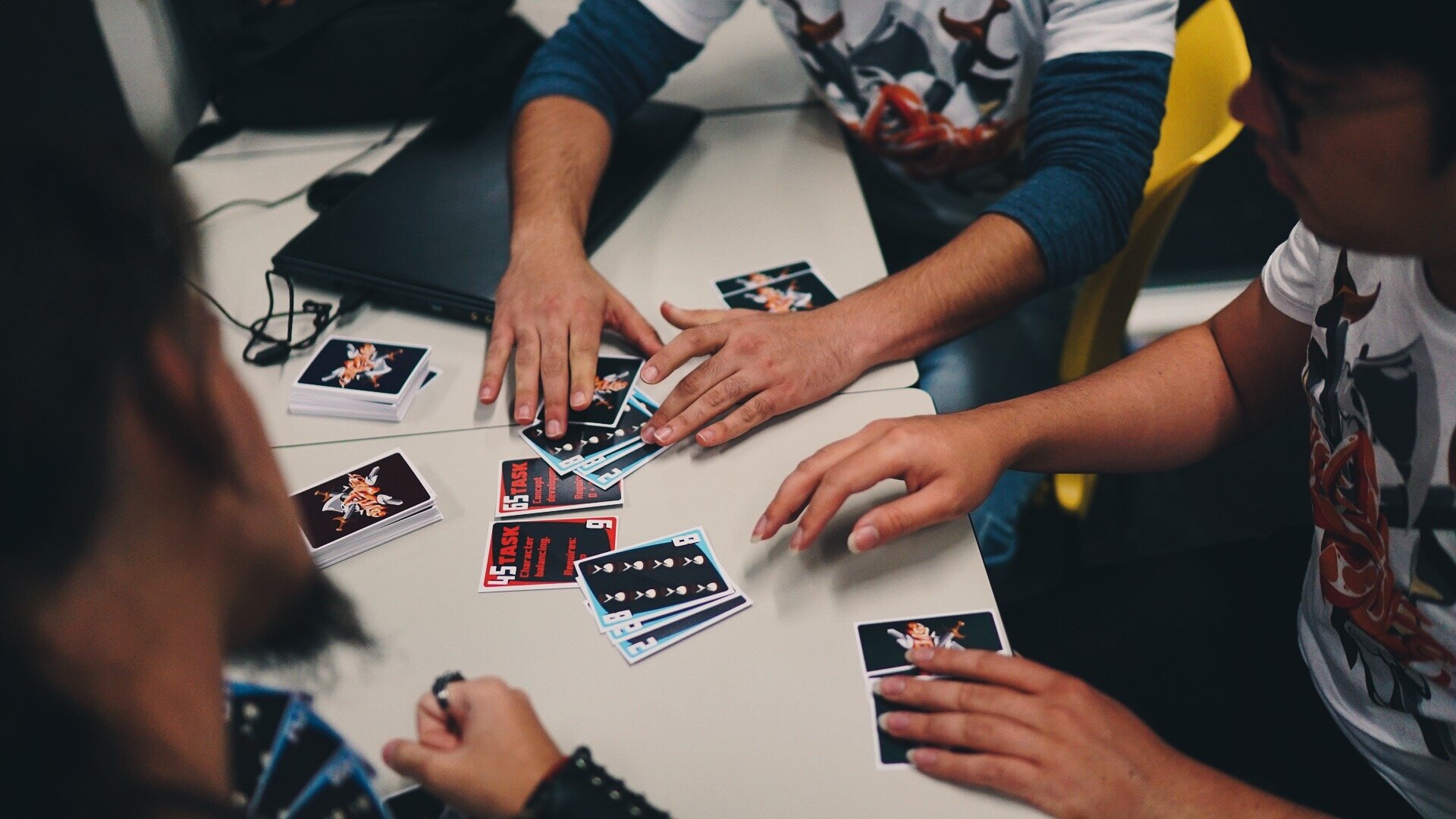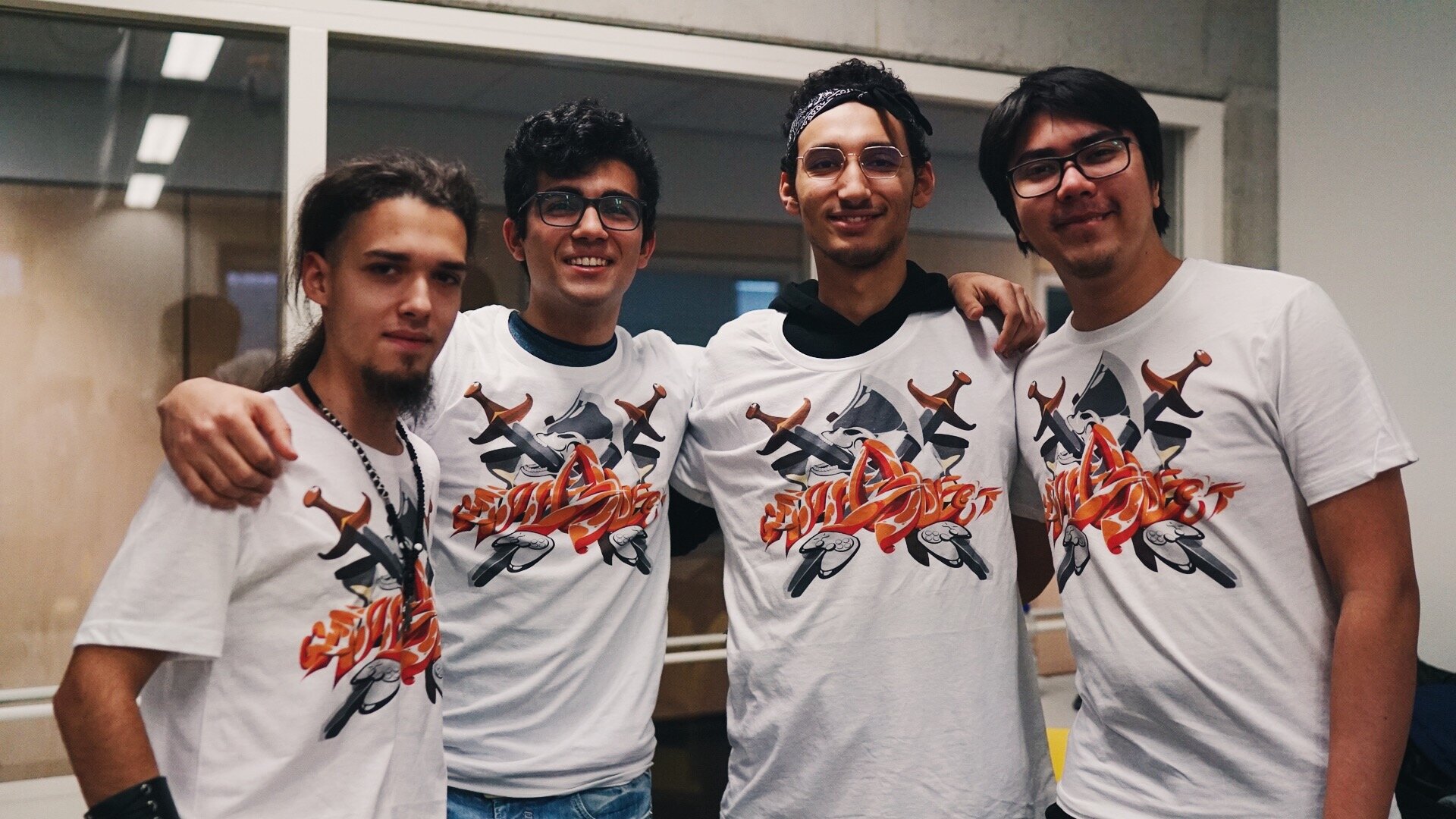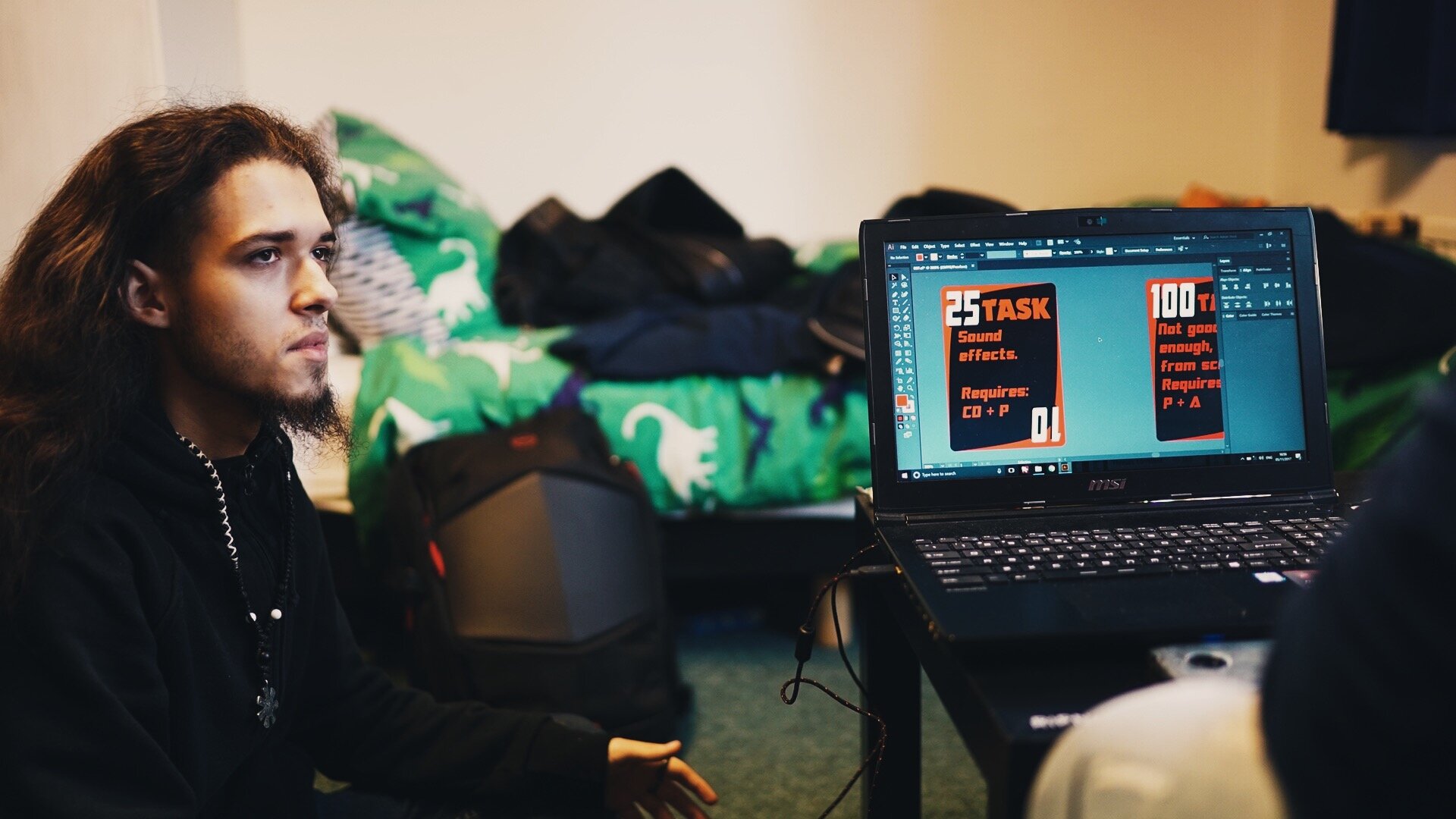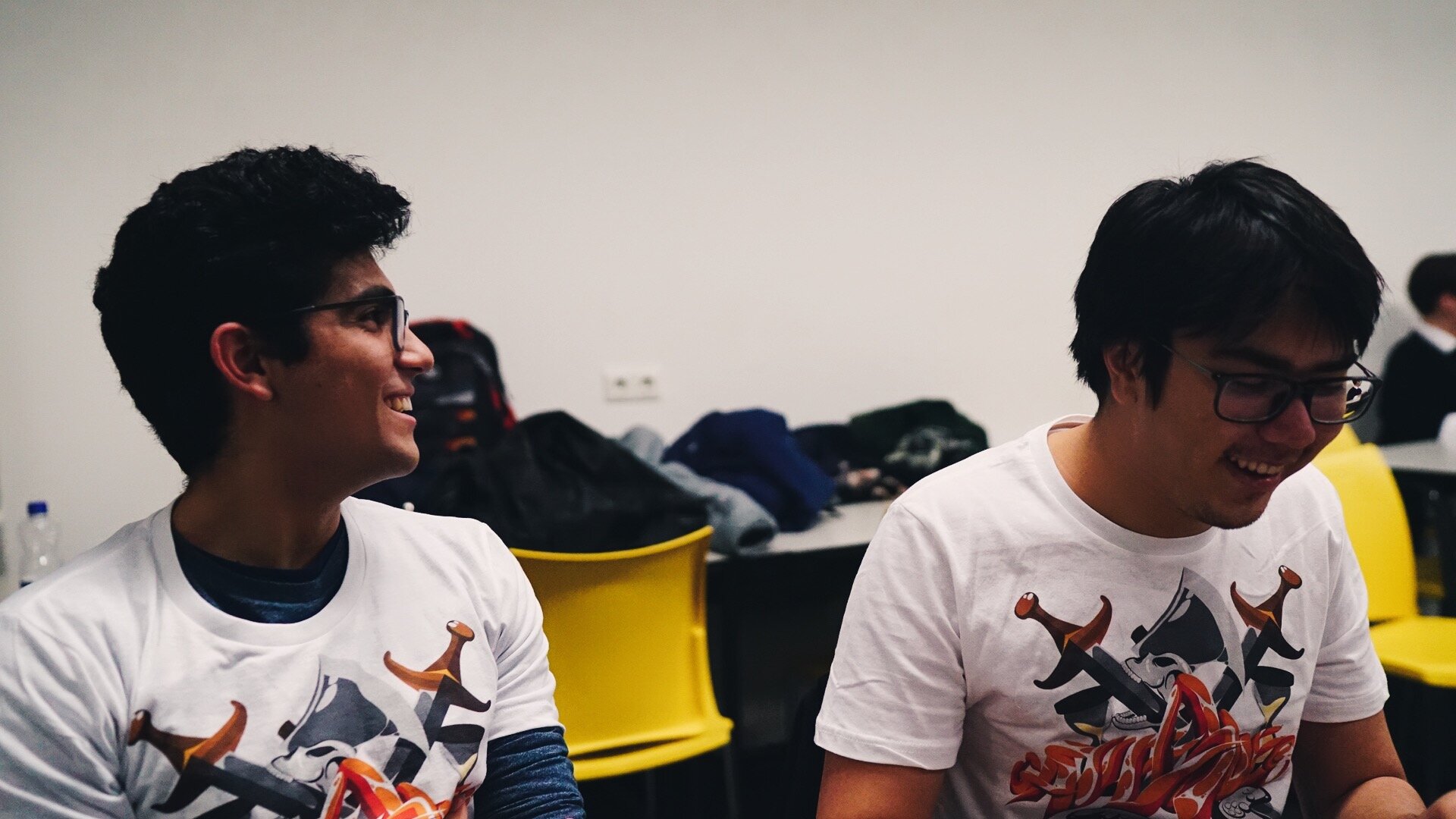
GameQuest
The game about making a game
My first game project, a serious game from my first year of university based around the theme of “intercultural competence”. The challenge was to create a purely card based game - no boards, dice, game pieces or scoresheets - that would teach players the concept of intercultural competence - what it means to work with people from different backgrounds and cultures, and the unique ways they differ from one another.
Made in collaboration with Ali Erentok, Antreas Kouloumis, and Anzhelo Enev.
Intercultural Competence
When working in a multicultural environment, understanding and accepting the way people from different cultures work is crucial for success. Playing to their strengths, however, guarantees excellence. GameQuest takes this concept and turns it into the core mechanic of the game.
GameQuest is a co-operative three-player card game, the goal of which is to create a game. This is done through managing time spent on tasks as well as understanding and optimising the synergy between multicultural developers based on their culture-influenced characteristics as described by Geert Hofstede (high/low context, monochronic/polychronic, individualism/collectivism, uncertainty avoidance).
How to play
There are four types of cards - Task cards, Time cards, Developer cards, and Bonus cards.
Task cards list a game development task that needs to be completed, the 2 developer roles it requires, the time requirement the tasks needs, and the amount of points it gives if successfully completed.
Time cards act as a currency - time that can be dedicated to a task.
Developer cards contain information about a developer - their role (Artist, Designer, Programmer), as well as 3 characteristics based on real cultures which may or may not be compatible with other developers.
Bonus cards are mixed in the same deck as Time cards. They provide helpful bonuses or boosts to help complete a task.
Players take the role of managers, each having 3 Developer cards they can put to work on a task. Two players play each turn, rotating clockwise. Each turn, a Task is drawn from the task deck. Players must choose which Developers to send to complete the task, but are unable to reveal the traits of their developers to the other player while negotiating - only hint at them or attempt to memorise the traits of other players’ developers at the end of each round. Once the two developers are chosen, the cards are placed facing down on the table.
Players then put down an amount of Time to contribute to the task and whether to play any Bonus cards they may have. Once this is settled, the chosen Developer cards are turned over and the amount of Time allocated to the task is added up. If Developers have traits that synergise with each other, an efficiency bonus is applied to the total time. If there are traits that are incompatible, a penalty is deducted from the total time. If the resulting Time is higher than the time required for the Task, the task is complete and the players earn the points. If the resulting time is lower than the required time for the Task, the task is failed and the points are lost.
The game continues until the Game is Due card is pulled from the Task deck, where the points from the successfully completed Task cards are tallied up.














